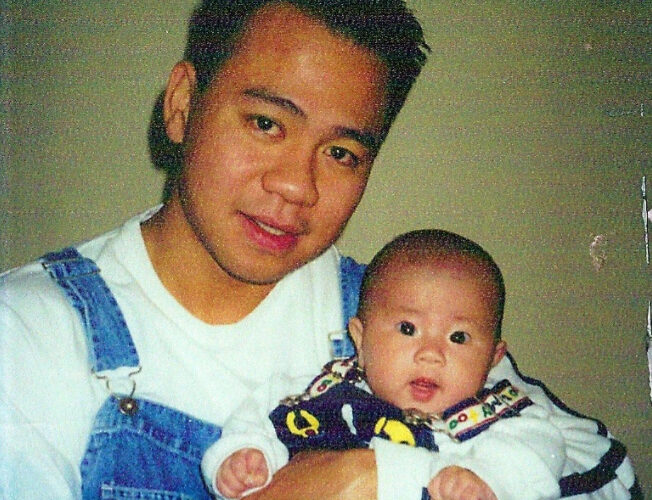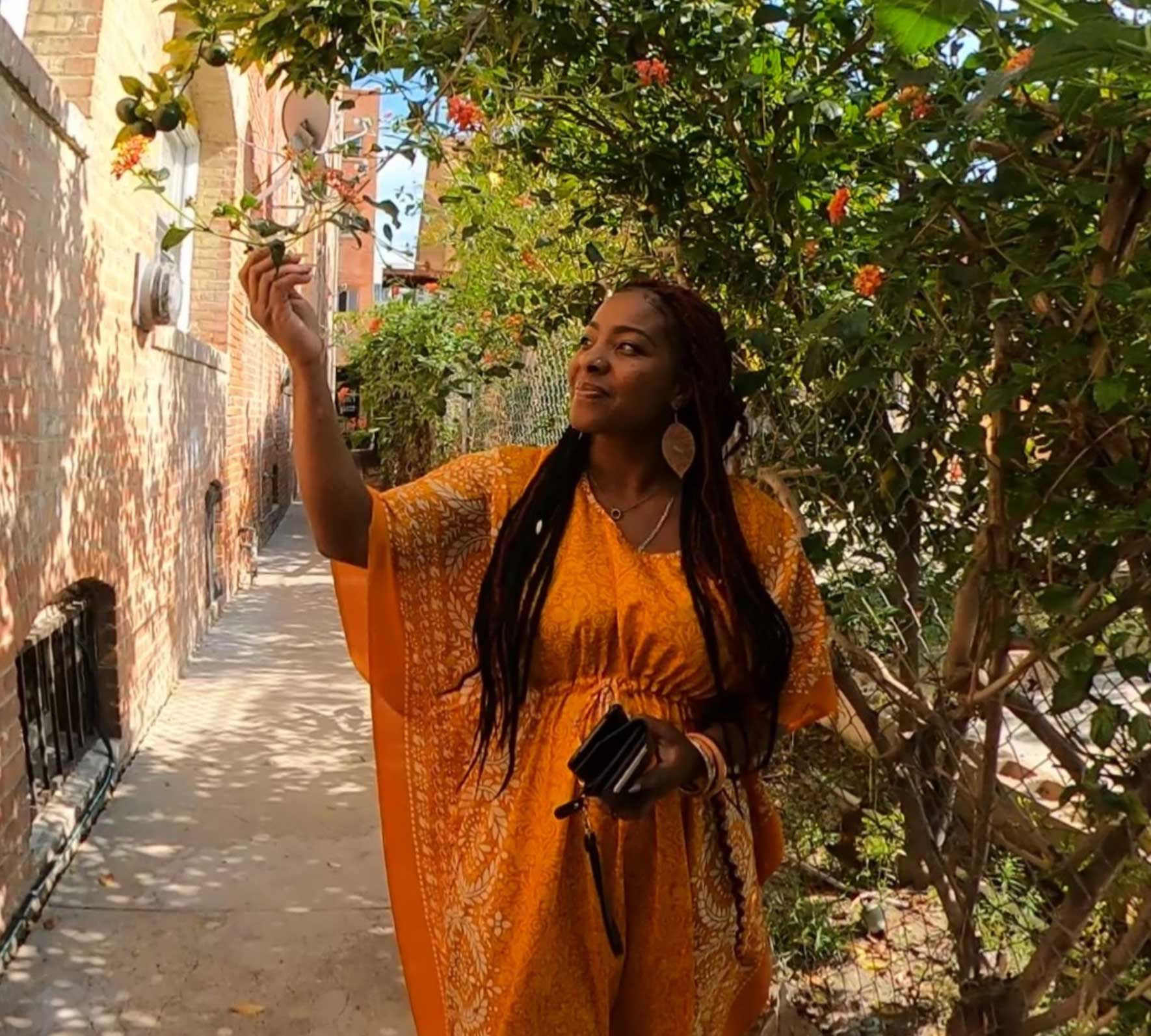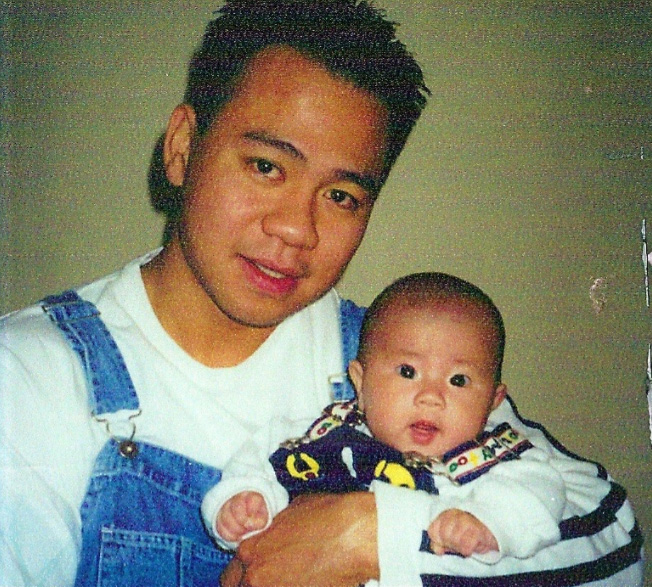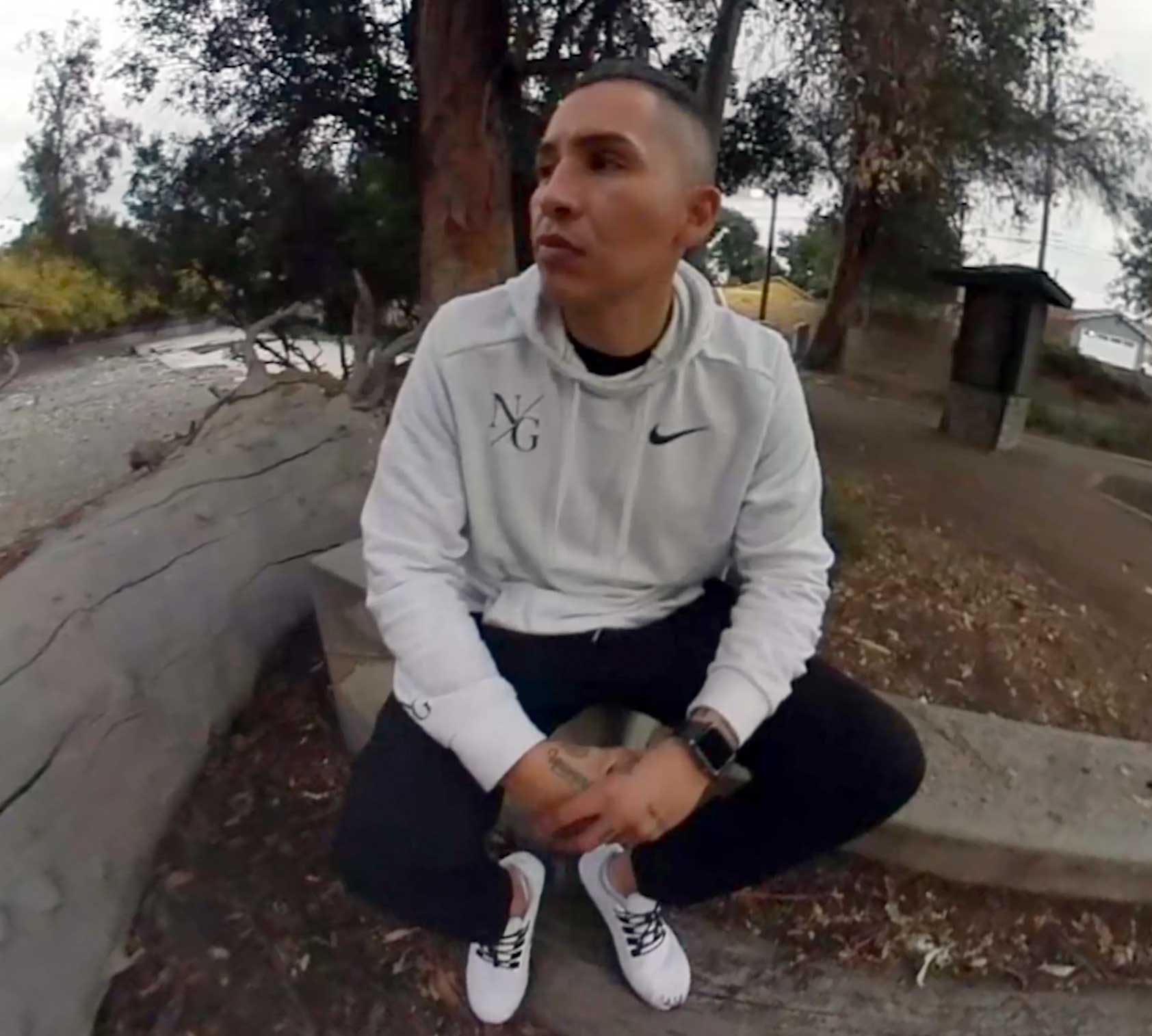Freedom is something Vicki Wong has been fighting for her whole life.
In 1977, she fled Vietnam with her family, including her one-year-old baby boy, Sonny. In the aftermath of the Vietnam War, the ethnic Chinese minority she belongs to was systematically persecuted. As a result, over a million “boat people,” as they came to be known, escaped via the Gulf of Thailand and South China Sea.
Thousands perished.
After the chaos of a Malaysian refugee camp, they migrated to the United States in 1979 and started building a new life in the Los Angeles area. Sonny was three years old at the time.
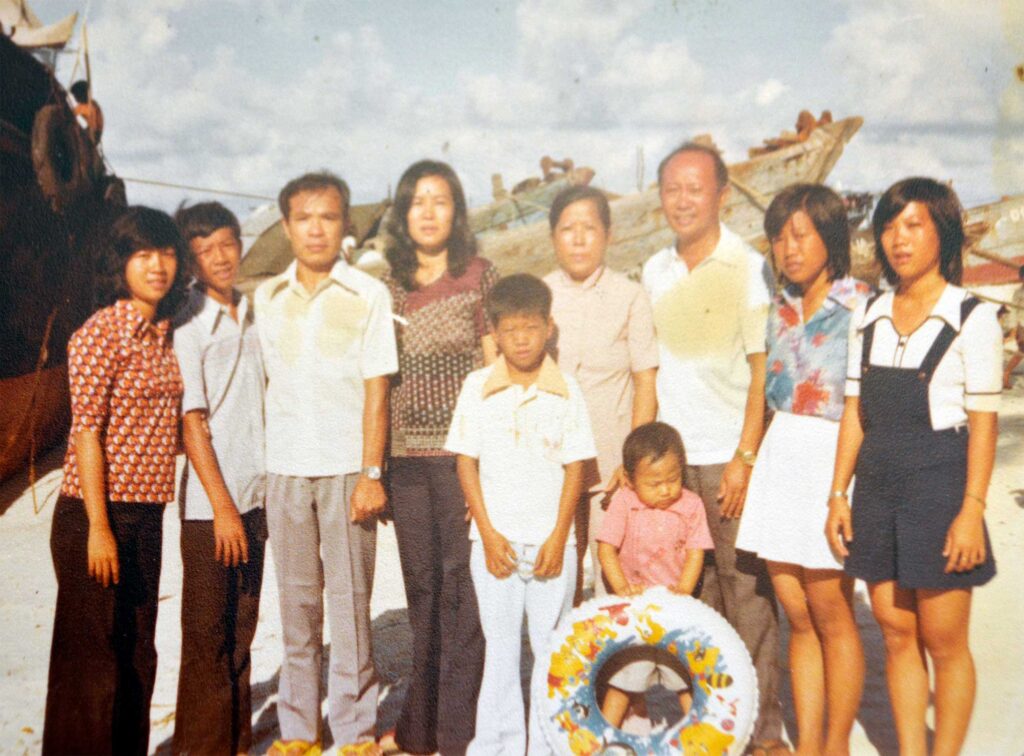
Vicki Wong and her family on the Malaysian island of Pulau Tengah, 1978. Her toddler, Sonny Wong, is at the front. The family cherishes this photo as a memory of how they escaped from Vietnam by boat in 1977. Courtesy of Vicki Wong
“He was often bullied at school,” Vicki recalls. Her husband was in and out of the hospital over the years, suffering from increasing medical complications.
She was also diagnosed with Hepatitis C and high blood pressure, and since developed cirrhosis of the liver.
Despite their hardships, they settled into their new life in the US. Sonny would grow up and graduate from college to become the main breadwinner of the family.
But at 22, the same age his mom had been when in the Malaysian camp, Sonny was convicted of first-degree murder and sentenced to life in prison without the possibility of parole.

Sonny Wong and his baby sister Vivian, weeks before his 2000 arrest. Courtesy of Vicki Wong
Sonny’s baby sister, Vivian, was just 3 months old when he and four others were convicted in the murder of Yi Chen (Eric) Liu.
“When my brother’s conviction occurred,” says Vivian, “it was like reliving that trauma of being a refugee for my mom, especially living in the refugee camps and not knowing what’s going to happen next – you’re always fearful, all the time.”
Vicki breaks down in tears as she sits among countless pages of case evidence affixed to every visible surface of her small house, recounting her struggles over the past 22 years.
“Seeing my mom crying almost daily while reading these documents, it was hard for me to bear,” says Vivian. “It took me a while to actually express that I have an incarcerated loved one because of the stigma. I feel like we’re always ostracized from society.”
Vicki, who spoke little English at the time, went to her son’s court hearings with her baby, and struggled to follow what was happening. She felt helpless when the court was unable to provide her with a translator.
The family is adamant that Sonny was wrongfully convicted.
Since then, the family has been fighting for his freedom every day of their lives maintaining his innocence. In addition to spending countless hours studying case documents, they spent all their money on investigators and lawyers.
When their money ran out, Vicki improved her English with the help of a dictionary to meticulously go through thousands of case pages, looking for any opportunity to free her son. They believe they have found evidence of collusion that can help prove Sonny’s innocence.
But the family feels like it is running out of time.
On August 18, 2020, Vicki’s husband died.
“He had to be hospitalized during the pandemic for 2 weeks after a surgery and contracted COVID-19 from a nurse. My father passed away a week before my senior year of college,” Vivian struggles to say out loud.
The following year, Vivian’s grandmother (Vicki’s mother) also passed away and Sonny contracted COVID-19 during an outbreak at Lancaster Prison.
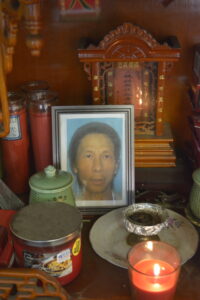
A photo of Vicki’s husband at the family altar.
“There were times when the doctors told my mom she doesn’t have long to live,” says Vivian.
Except for buying food at the grocery store and going to the doctor, Vicki’s existence is confined to the four small rooms of her house where she religiously studies Sonny’s case documents. She and Vivian share a small room where she’s created a makeshift table out of an ironing board to be able to work at any time, even from her bed.
Vivian, who has never known life without an incarcerated sibling, feels the responsibility is now shifting solely onto her.
Ever since she can remember, Vivian has wanted to become a lawyer to help her family.
As a teenager, she built a website showcasing the vast documentation they’ve analyzed about her brother’s case, explaining their beliefs on how the justice system failed him.
“It was more of a case of my career choosing me,” said Vivian, who wants to not only to help her brother, but others like him.
Last December, all of her hard work at school and studying for the LSAT paid off.
Vivian, now 22, was accepted to law school with a full scholarship.
Their only wish today is for Sonny to be reunited with them – to have his name cleared and see him freed.
Until then, Vicki and Vivian keep fighting.
To learn more about Sonny’s case visit their website and Instagram.

A prized family photo of Vivian and Vicki visiting Sonny at Lancaster Prison before visits were suspended due to COVID-19. Sonny trains dogs for an organization called Paws for Life, amongst other jobs.

